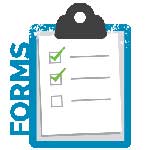Teacher Standard

Teacher Ability
Command against languages is an essential for any teacher. However given the diversity of languages /dialects of the country we find several teachers who are not fully familiar with even the major local languages that are often the medium of instruction. As a result the teacher cannot fully comprehend curriculum, text books, policy documents, notifications and are unable to identify appropriate reference material. In fact their ability to create a meaningful learning environment, think critically, learn, receive inputs and build their own capacities is affected due to constraints of language.
This has far reaching implications for the learning of the students. Naturally, the situation is worse for second languages and English. Therefore improvement of language skills of potential/existing teacher has to be a necessary part of any teacher education / development process.
It is imperative for the teacher to ensure learning of each child in their class. However it is quite commonly observed that several children in the class get left out. There are several reasons for this situation but most of them stem from the teacher’s inability to engage with teacher each child and understand the learning abilities (as mentioned in constructivism) of the children.
This requires a firm commitment of the teacher to ensure learning of each child; knowledge, skill and practice to understand learning abilities of each child; and finally the teacher should not have prejudices / bias against the ability to learn of children from any section of the community.
The purpose of education, as mentioned in NCF 2005, is to be build competencies in children. This is especially true for primary children, where the level of competencies acquired determined their ability to learn in future. Given this, all concepts in a subject have to be necessarily used as vehicle for developing desirable competencies apart from the informational value of concepts.
For this it is important for the teacher to understand the linkage between concepts and competencies, as also the linkages amongst different concepts and subjects. An understanding of the ‘nature of the subject/concepts’- the very reason for including the subject/concept in the curriculum- is necessary too. Finally the teacher must be able to visualize how she is going to facilitate the development of a set of competencies through a given concepts.
Each child is unique and has her/his own abilities to learn. This has an impact on what he would learn and how. It is necessary that the teacher creates diverse learning experiences in the class that create learning opportunities for all students. Such learning experiences have to necessarily be based on the experiences of the children. The teacher therefore has to be familiar with different pedagogical method/techniques and should have the skill to use the same to convert the experiences of the children into learning.
In order to facilitate the learning of child, a teacher must be able to assess what the child has learnt thus far and give her constructive feedback for further learning. The teacher has to take full responsibility of the learning of each child.
The entails an understanding of stages / process of competency development and its manifestations, skill to create learning opportunities based on learning abilities of the child, close and sensitive observation of the child, communicate feedback in a sensitive manner, create process/ instruments for ‘self-assessment’ by the child, document significant changes in behavior of the child and create periodic competency based progress report of the child.
All experiences of children lead to learning. If the experiences of children in school are not aligned with their experiences outside the school, there is every chance that the learning of the child will be affected. In such situations, quite common across the country, it is seen that either the child rejects either in school experiences as inferior / different leading to forced alienation from her context. In either case, the learning of the child is inadequate. The teacher has to address this situation by, among other things mentioned earlier, proactively engaging with parents of the children to understand their context better, to understand and adjust the purpose of education from their perspective, to communicate the learning progress of their child, and to help them identify appropriate roles for themselves that can facilitate the learning of the child.
It is vital for the teachers to see themselves as a team member of the school and the education system, where they have to perform their given duties in collaboration with and support other team members who may have similar or related duties. In the absence of such an understanding and skills it is only natural that the learning of the children will be affected.





